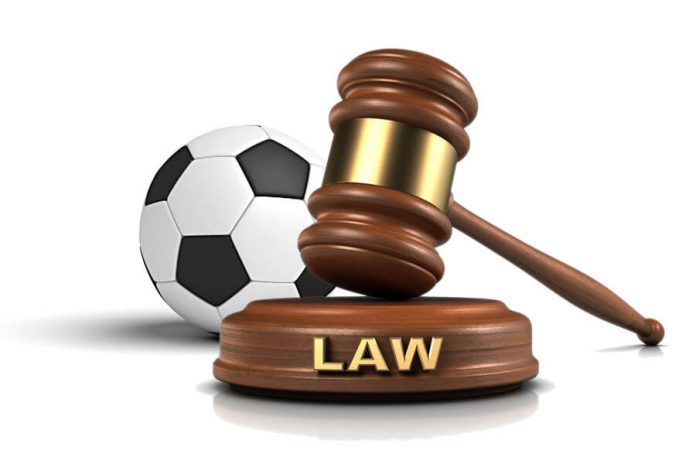This article is written by Paridhi Goel, from Symbiosis Law School, Noida. This is an exhaustive article which deals with the laws and legislations related to sports in India and also highlights the issues as well as certain suggestions to improve the sporting standards.
Table of Contents
Introduction
Sports has a special place among human beings where most of us as children have played some kind of sports at school or college and some have even chosen it as a career. Playing sports has its own health benefits as it keeps the body physically as well as mentally fit. Apart from this, some people are passionate about some sport motivating them to achieve high ranks in it. Then some people see sports as a mere source of entertainment. In a country like India, children from a very young age start taking interest in various sports activities for example cricket or badminton for which these children do not need proper grounds or equipment to play.
Today, we see the sports industry in India is highly competitive and has a global reach. The revenue generated from this industry contributes 3 percent to world trade and has gained importance in the social as well as political spheres all over the world. Since, India has successfully developed Sports into something bigger than just personal recreation, it also faces certain problems of the Sports Industries. This may include hosting of big events, handling sponsorship and media, providing infrastructure and licenses to the sportspersons, and ensuring ethical sporting practices all over the country. Such complex issues could be dealt with the introduction of proper law that would safeguard the interests of the sports industries and also restore a balance. With the coming years, as the industry witnessed certain scandals and maladministration in this system, new policies were designed to execute and various associations were set up to govern the sports law in India.
History
It is well known that sports were an integral part of Ancient India when different kinds of sports were played as a source of amusement for the Kings and Queens while it was also a form of recreation for the people. For the players, sports were a source of income back in those days and not evolved as a career or hobby. One cannot imagine that laws binding these sports or federations were set up for the promotion of players and their talents, however, we do know that they entered into a contract to entertain the kings and their subjects at their own risk only to earn money. Games like Chess, Archery, Hockey, Polo, and Wrestling were the star games of the royals and nobility. Some of them were adopted as traditions among the families.
With the change in beliefs and thinking of people, the outlook on sports also changed and from a historical lineage, it turned into an activity-filled with enthusiasm, encouragement, and a desire to prove oneself in front of the whole world. Gradually, India started participating in sports events all over the world, and the government provided aid for setting up training centres for the players.
Even after these changes, India was unable to portray its talents properly due to a lack of motivation from the government and the people and also the absence of uniform regulation for sports. It is clear that even in the modern era, parents, as well as teachers at school, concentrate more on academics than letting their children focus on sports to explore their interests. Apart from cricket, India is not a huge success in other sporting events and this can be changed by framing the right laws to bring all authorities together for the supervision of the sports industry.
National Sports Policy
Mere participation of Indian Sportspersons in various events and competitions was not enough to establish a strong image of sports in India. The lawmakers felt the need to introduce a certain policy to raise the standard of sports in the country. With this thought, a resolution was passed on the National Sports Policy in both the Houses of Parliament in August 1984. It was decided that the progress made after the implementation of this policy would be recorded and reviewed every five years to plan the further course of action if felt necessary. The National Sports Policy of 1984 had some encouraging points however, its implementation could not be done. To reformulate this policy and correct whatever was wrong with the previous bill, National Sports Policy, 2001 was drafted with a three-fold objective. The guidelines of the policy are as follows-
- The first objective was to clearly define the areas of responsibility of all those agencies that looked after the promotion and development of sports. In the Sports Industry, promotion is considered vital for all the players and sponsors.
- The second objective was to found those sports federations that were eligible enough for coverage under these guidelines and then to lay down the procedures that have to be followed by these federations to get governmental aid and assistance and even avail sponsorship.
- The third step was to decide the eligibility criteria which the Government will follow to release grants to the Sports Federations. These conditions had to be chosen carefully so that the federations took it seriously.
Even the Central Government came up with certain objectives of its own with accordance to the provisions of the National Sports Policy, 2001 like Broad Basing of Sports, making Physical Education a compulsory subject in schools, helping in the promotion of sports and achieving excellence in sports at both national and international levels along with the help of the State Government, the Olympic Association and National Sports Federation. To fulfil all these objectives, Sports was included in the State List under the Seventh Schedule (Entry 33) in the Constitution of India.
Various associations that govern the sports law
There are some associations that have taken the responsibility of governing and developing Sports in India keeping in mind certain legal measures and laws. These associations are as follows-
Sports law and welfare association of India
The Sports Law and Welfare Association of India is a professional non-profit organization working at the national level for promotion of the ethical practice of Sports Law in India. Its goal is to understand and improve the existing laws relating to Sports and to ensure that these laws run smoothly to maintain the sports industry. It does so by bringing the legal practitioners and the sportspersons together and providing advice on any legal issues that the person might be going through. Apart from this, the association also acts as a consultant on matters like regulation of the Sports governing bodies, general disputes related to sports, intellectual property matters, online advocating and promoting, etc. It also aims at discussing any of the legal problems that are affecting sports or any of the sportspersons and exchange a variety of perspectives on legal matters. It will also create a forum for all the lawyers representing the athletes, teams, leagues, conferences, recreational and educational institutions, and working in organizations that are involved with Olympic, physical education, and amateur sports. This forum will help in setting up rules to ensure that ethics are followed in sports.
Sports Authority of India
The Sports Authority of India (SAI) is an apex body set up in 1984 by the Ministry of Youth Affairs and Sports, working at a national level to conduct and coordinate various sports activities in the country. After some successful events of sports in the country, the Government was motivated to focus on the development of sports in India and to encourage physical fitness among the youth. Sports Authority of India has extended its boundaries to promote broad-based sports and to lay down provisions for the youth to direct their energy in achieving excellence in sports. It also opened certain supportive programs like introducing physical education in academics, coaching, and awareness of physical fitness and sports, introduced sports scholarships so that the youth is motivated to join sports and set up schemes to hand over incentives to those in need for training to upgrade the skills of sportspersons in India.
Sports broadcasting law in India
The Sports Broadcasting Signals (Mandatory Sharing with Prasar Bharati) Act was passed in the year 2007 to provide access to those sporting events that had national importance, to a large number of listeners and viewers on a free to air basis. This can be done through the sharing of sports broadcasting signals with Prasar Bharati for matters related to it. The Act does not allow any of the content right owner or holder television or radio broadcasting service providers to carry a live television broadcast on any cable or direct to a home network or radio unless it is continuously sharing broadcasting signals. This is done to attract a large crowd, to develop enthusiasm among people for sports, and to promote the sports among a large crowd.
Ministry of Youth Affairs and Sports
It is the Ministry of Youth Affairs And Sports that lays down the eligibility conditions for various National Sports Federations to get recognition and grants to promote sporting events. It supervises the bodies that govern sports in India, supports them, and gives them aid when in need. The Ministry also carries out long term development programs to achieve the goal of excellence.
Need for proper legislation
Even after the constant support from the Government bodies and motivation from the people, the Sports Industry in India is still not much of a success. Moreover, it is getting plagued by comments on many wrong incidents that are taking place in the Sporting World. There is news regarding bidding scandals, corruption in sports, betting, pre-fixing matches, and worse- sexual harassment of the women players. It is agreeable that the competition is indeed high in sports today and by adopting corrupt and illegal practices, many events can be won. However, it is important to note that India established associations for sports on the foundation of ethics and the pure talent of the sportspersons. It does not believe in stooping down to illegal forms just to win and gain popularity. There are labour issues where the players have to negotiate their working hours, wages, and training conditions on their own because their agents are not doing their duties well. Then, there is a bigger problem of Drug usage. Although many measures are taken to prevent the players from consuming performance-enhancing drugs, they manage to figure out a way to use them. Not only is it illegal but it also poses a threat to the health of the player. Also, there is a need to check the accountability and actions of all government bodies and agencies involved with managing sports. For all these purposes, legislation has to be introduced and implemented strictly including penalties and jail terms for illegal and corrupt actions. This is the only possible way to control the situation and once again play clean sports.
Other issues
There are various laws and legislation made to solve a variety of problems that are prevalent in sports however, this legislation has not been able to cover all the issues. Apart from the many scams and scandals happening in the sports industry, the high use of drugs, corruption, bidding, match-fixing, and betting on players, there are other issues to resolve. The first issue is the ill-treatment of certain players who are not sports stars and are not considered of much value to the industry. These are players who are a part of sports because of their passion and will, however, their performance is not the best at all times and so they are pushed away by the officials. They do not get proper wages, their contracts are illegally terminated and they are exploited based on the working hours. They are even denied the advanced training facilities as they are meant for the top players and thus, they do not get any opportunities to improve themselves. No such legislation has been laid down that covers the provision of equality among the players of the same gender. The second issue is regarding those sports which do not always make the front page of the newspapers or the headlines on television. Even these sports deserve the promotion that other socially hyped sports get for example cricket is anytime more favored than hockey. Every sport should get grants to improve its training facilities and not provide aid based on the popularity of the game or any player.
Sports and competition law
Two teams playing against each other are said to be competing against each other. It is this competition between the teams that make it a game. This competing element not only motivates the players to play but also this is the way of generating revenue through games. For the teams to be successful, they require efficiency so they can compete even better. Unequally distributed playing talent can lead to competitive imbalance. Competition is what gets the players paid for their services and ensures a flow of income in the industry too. Sport is generally organized in a ‘pyramid’ structure where on one end, a single governing body controls most of the commercial aspects of each sport. This governing body is the dominant one that looks after the games and their competition. The competition law looks over these bodies and makes sure that there is an anti-competitive organization rising as a rival. As is the case in India, the Board of Control for Cricket (BCCI) holds the de facto ‘dominant’ position in the structure. They make rules to prevent rival organizations from emerging as they tie players in, prohibiting them from competing in other events. These rules are a subject of challenge under competition law.
Sports law and arbitration as a dispute resolving mechanism
Arbitration, a form of Alternative Dispute Resolution is a legal way of resolving disputes outside the courts wherein the parties to a dispute refer it to one or more persons who can be called the arbitrators and then they make a decision which the parties agree to follow. It is a simple settlement technique that allows a third person or party to review the case brought by the other parties and then make a decision that would be legally binding on both the parties. Arbitration is governed by the Arbitration and Conciliation Act of 1996, in India. This Act has two parts- one which deals with the resolution of disputes on a national level and sometimes international too. The second part deals with arbitration outside India only. In the field of Sports, any dispute that comes up is first referred to those federations that govern the particular sport that is related to the dispute, and then if necessary the international federation is also involved in resolving the dispute. As the games are becoming more professional and competitive, the need for arbitration is also increasing. Not only does this mechanism give a quick judgment on what to do but also provides the most suitable solutions understanding the diversity and incontestability of sports. Other than this, arbitration mechanism also reduces the burden of sports-related disputes on the courts, as they already have many cases pending before them and can take up a long time to come to a final decision.
Suggestions
The legislation concerning sports has been designed in such a manner that it covers all the important issues that the industry might face. The National Sports Policy and Associations are established to give all the legal support to the sportspersons whenever they need it. These governing bodies also act as consultants and they share their opinions on everything. However, as discussed certain issues are still not attended to and they do demand immediate action. A few suggestions to make the legal component of sports better could be to first introduce laws that ensure the protection of the rights of the sportspersons irrespective of the fact that they are the star players or not. Their rights and contracts that they have entered into should be safeguarded and not illegally terminated whenever they want to. There should be laws looking after the wages and facilities given to each player and whether or not they are exactly what the player had agreed to. Also, they should introduce legislation which helps to promote every sport, big or small, famous or not in newspapers, televisions, and media. Lastly, the competitions set up for sportspersons should be properly organized and structured.
Conclusion
The sports industry is a powerful unit of India as it has talent, the dedication of its players, support from the Government bodies, money and grants to cater to the needs of persons, a set agenda, goals that have to be achieved and strategies that will be required to put up a good game. One most important element to have all this is a discipline that can only be gained by following the legislation and rules made especially for the sports world. It is the laws that have built such a strong foundation for us to see the Sports Industry still standing on its own.
References
- https://www.lawinsport.com/topics/item/how-competition-law-is-affecting-sports-in-india-a-look-at-the-emerging-case-law
- https://iasscore.in/national-issues/need-for-sports-law-in-india
- https://advocatetanmoy.files.wordpress.com/2017/05/national-sports-policy-2001.pdf
LawSikho has created a telegram group for exchanging legal knowledge, referrals and various opportunities. You can click on this link and join:
 Serato DJ Crack 2025Serato DJ PRO Crack
Serato DJ Crack 2025Serato DJ PRO Crack











 Allow notifications
Allow notifications


